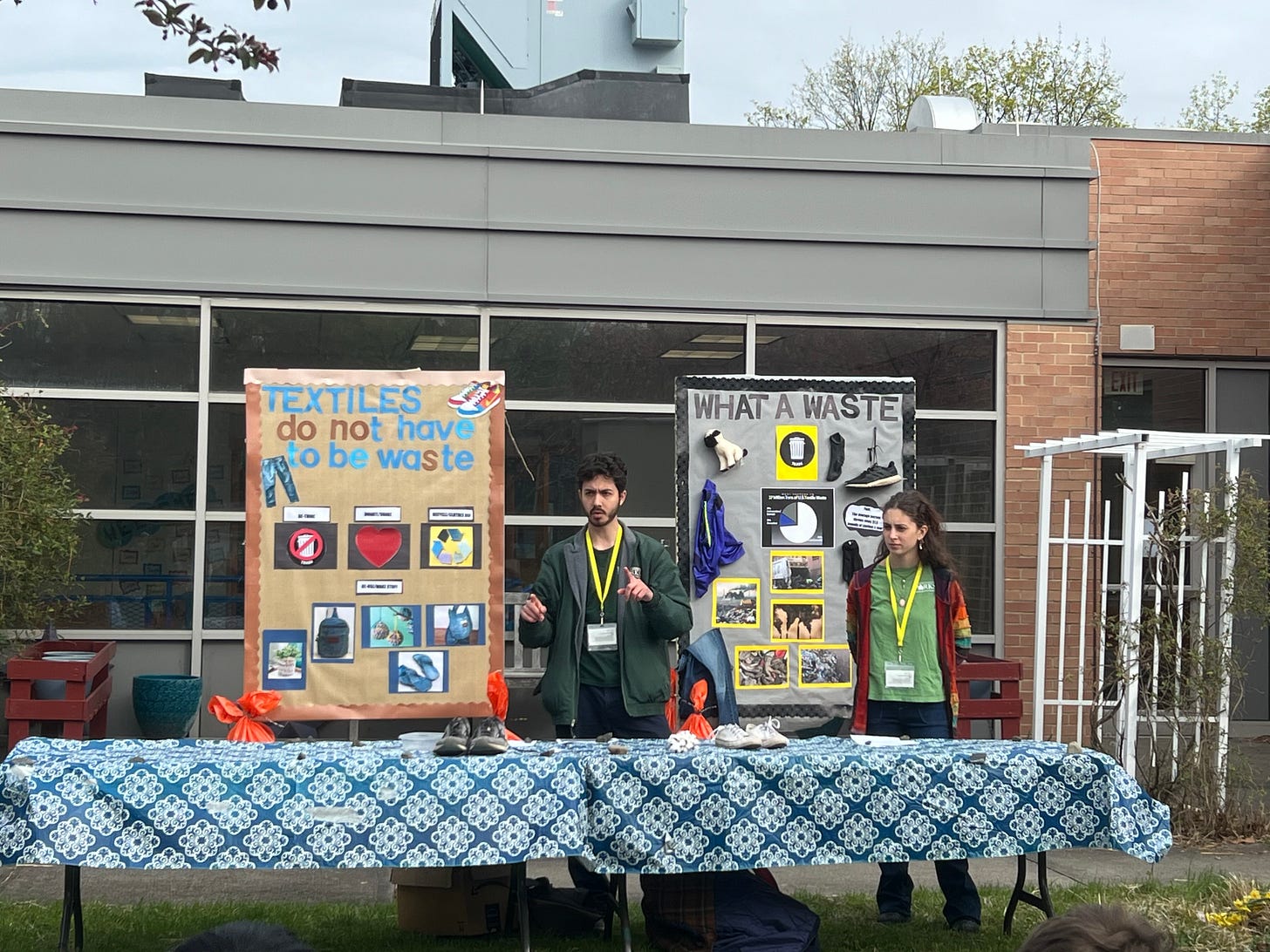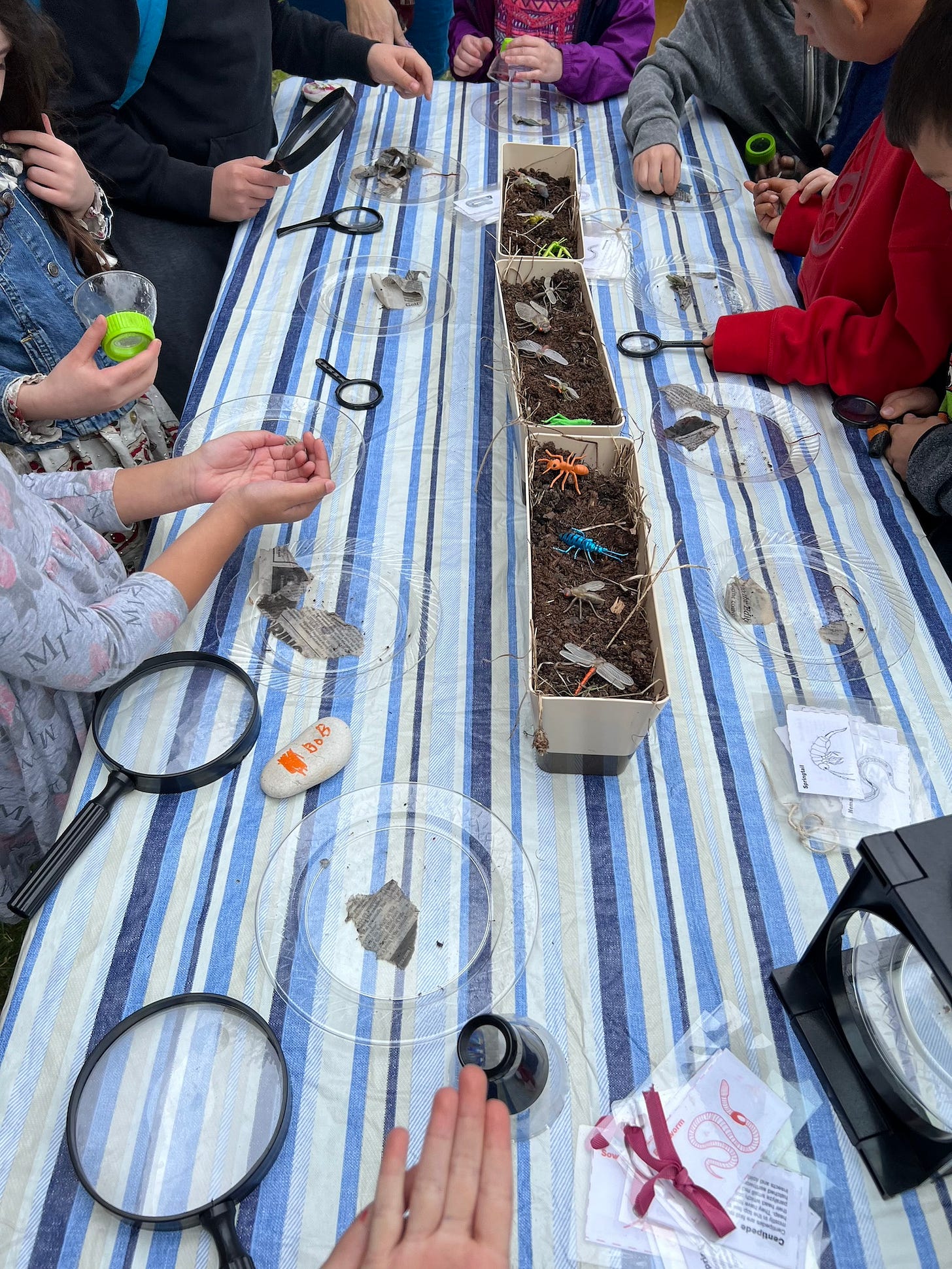Rivertowns Students Crush Earth Month
Throughout the Rivertowns, students hold events that help planet Earth

by Kris DiLorenzo
Hastings-on-Hudson, Dobbs Ferry, and Ardsley — All over the world, young people are leading the fight against climate change. Sweden’s Greta Thunberg may be the most famous representative of this movement, but Rivertowns students of all ages are the local leaders.
Hastings High School’s Environmental Club, Ardsley High School’s Environmental Task Force, and Dobbs Ferry’s Springhurst Elementary School are among the many entities holding events during April, Earth Month. The Hastings club is partnering with the Village, and Springhurst is a longtime partner with the Dobbs Ferry PTSA.
Just in time for Earth Day, Hastings Mayor Niki Armacost made an important public announcement: Hastings is one of 100 municipalities worldwide to receive a $50,000 grant from Bloomberg Philanthropies’ Youth Climate Action Fund. The money will be distributed as microgrants to youth (ages 15-24) who propose local projects addressing climate change. Projects that are selected must be completed by Sept. 28; after that, the Mayor’s Climate Youth Council (MCYC) would be eligible for a $100,000 grant.
Co-presidents of the Environmental Club, seniors Mia Christie and Aynsley Zamore, co-founded the MCYC as sophomores in May 2022 “to bring students together to fight climate change on a local level, by setting achievable goals and taking productive action,” as described in their written presentation to the Village. Zamore and Christie recently spoke with the Rivertowns Current about their efforts.
“We used to go on runs in the dark of winter and talk about things that we wanted to get involved with in the town, and we always felt we lacked a way to involve ourselves as youths,” Zamore recalled. “There was definitely a barrier there.” In February 2022 the girls penned an article for The Buzzer, the school’s online newspaper, titled “A Climate-Conscious Future for Hastings.” They later met with Armacost and Village Trustee Morgen Fleisig to discuss how to bridge the gap between youth and adults.
Zamore and Christie will review the grant applications and choose potential projects they consider most beneficial to the community. If they’re inundated, a panel of adults will participate. To help students who want to make a change but don’t know how, the two brainstormed ideas. Christie explained, “Our goal is…once we start talking about their projects, to make them become long-term members of the Environmental Club.”
As part of the Village’s Adopt-a-Spot program, and working with the Hastings Pollinator Pathway Project, the club has planted a pollinator garden in the circle at the intersection of Rosedale and Hillside avenues. On Sunday, April 28, it will have a presence at the village’s annual “Spring Thing” street fair on Warburton Avenue. “We’ll have a stand asking trivia questions about the environment, and provide seed kits for potted pollinator plants,” Zamore said.
This weekend (April 27-28), the Environmental Club will be among the Village Wide Clean-up volunteers getting their hands dirty, picking up trash and recyclable items.
Ardsley High School’s Environmental Task Force are active participants in the village’s Stormwater Outreach project, with the direction of Lorraine Kuhn. Kuhn is the Village’s stormwater management coordinator and a Recreation Commission board member. Two projects are in the planning stage for this year’s Village of Ardsley Stormwater Outreach. The first would make use of the rain barrel that the students helped install at the public library last year. Task force adviser Tara Bandman, who teaches English and theater arts, elaborated: “At the library is a growth of 'Tree of Heaven,' an invasive plant that is also a favorite host to lantern flies. The plan is to remove the invasive and plant milkweed instead. Milkweed is essential for monarch butterflies, a vulnerable species. The rain barrel will help provide water for the new milkweed plants.”
The second project, if approved by the State, is a ‘Bioblitz.’ “It’s a survey of as many plants and animals in a specified geographic area as possible, in a limited time frame,” Kuhn wrote to the Rivertowns Current. “Two students would do an acre section of Macy Park in 3 hours.” This activity would contribute to preparation of the Village’s natural resource inventory, which includes geographic and cultural information, and functions as a planning guide for environmentally responsible use of municipal resources, including water bodies.

Springhurst students have long been environmentalists, engaging in composting, gardening, waste reduction, food scrap recycling, and other efforts. Among other activities, this month they interacted with Red Wiggler worms at a hands-on composting station, using magnifying lenses to better understand the role that decomposers play in the environment. Also, the Jr. Green Team after-school club of 14 fourth- and fifth-graders is running a textile recycling drive, open to families of the Springhurst community.
Beyond Earth Month, the school’s first annual Eco Fair will take place on May 4 in the courtyard, featuring crayon recycling, demonstrations of composting kits, eco-friendly cleaning products, seed starting soil and potting, produce canning, and pasta making. Volunteers will accept dead batteries for proper recycling.
Though climate change is now being addressed at the highest levels internationally, including at the United Nations, since Earth Day was established in 1970 younger generations continue to be the driving force to save the planet.
Looking for another way to support Rivertowns Current?


